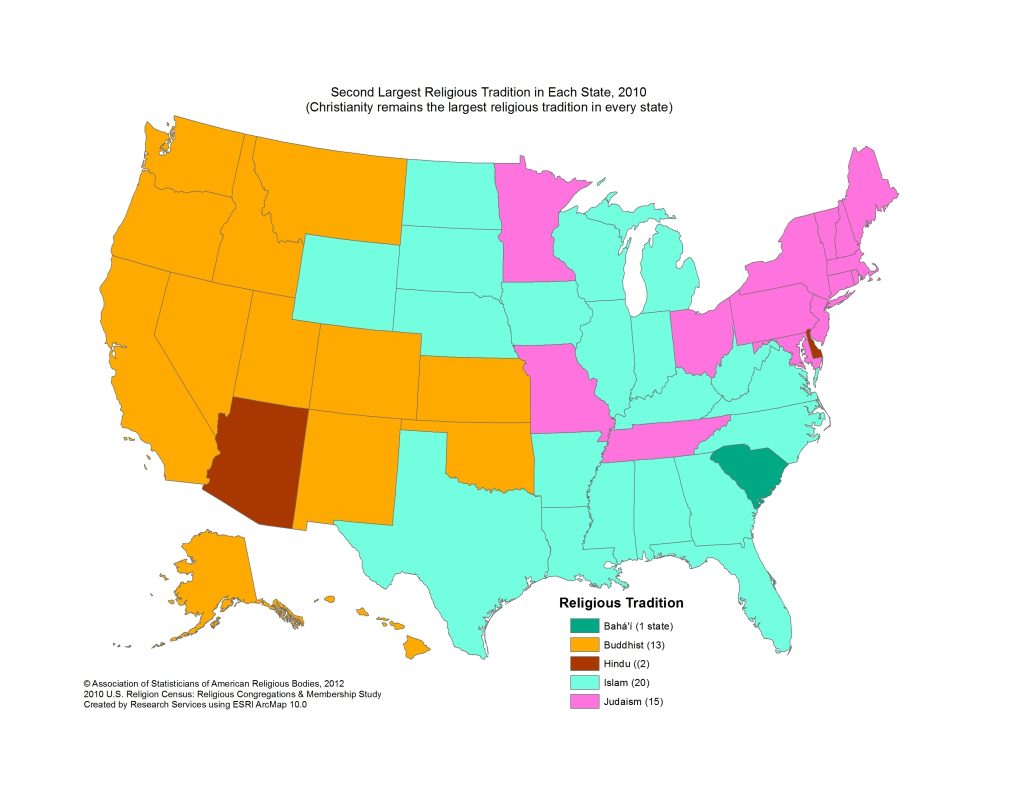The Resilient Future of Christianity in America: Navigating Challenges with Faith and Fortitude
The future of Christianity in America has been a topic of debate and concern for many years. Numerous predictions have suggested that Christianity is on the decline in the United States, following the path of churches in Western Europe. However, a closer look at the current landscape reveals a different story. As millions of Americans celebrate Easter, the message of finding new life in unforeseen places resonates not only with the Easter story but also with the surprising prediction about the future of Christianity in the US. This article aims to explore the potential revival of Christianity in America by examining the migration of Christians from the Global South, the changing demographics of the country, and the adaptability of the church.
The Resilience of American Christianity

Throughout history, there have been numerous predictions about the extinction of Christianity in the United States. However, these predictions have not come to pass. Even Thomas Jefferson, one of the nation’s founding fathers, predicted in the 1820s that Christianity would be replaced by a more enlightened form of religion. Yet, instead of declining, Christianity experienced revivals and became a dominant force in American life. Joseph P. Slaughter, a historian and assistant professor of religion, emphasizes the adaptability of American Christianity and its ability to shape the American society.
While recent polls indicate a decline in the number of Americans identifying as Christian, this does not necessarily translate to a decline in influence. The rise of the “nones,” those who do not identify with any religious affiliation, does not mean that these individuals are becoming less religious. Many still practice spirituality and engage in religious practices, such as prayer and meditation. Additionally, the religious commitment of American “nones” is comparable to or even stronger than that of Christians in some European countries.
The Challenge of Changing Demographics
One major factor that could contribute to the revitalization of Christianity in America is the migration of Christians from the Global South. The United States has the highest number of immigrants globally, and many of these immigrants come from Latin America and Asia, bringing their religious fervor with them. This demographic shift, often referred to as the “Browning of America,” is expected to make White people the minority in the US by 2045. The influx of Black and brown Christians collides with the growing White Christian nationalist movement, which poses challenges to the church’s inclusivity and acceptance of non-White immigrants.

However, embracing this demographic change could be the key to Christianity’s rebound in America. Latino evangelicals, for example, are now the fastest-growing group of evangelicals in the country. The future of American Christianity lies in a multiethnic community led by immigrants and their descendants. Tish Harrison Warren, a New York Times columnist, argues that the future of American Christianity is not solely dependent on White evangelicalism or White progressivism but on a diverse and inclusive community.
The Influence of Global Christianity
Looking beyond America’s borders, the vitality of Christianity in the Global South offers hope for its future in the US. The world’s largest megachurch, the Yoido Full Gospel Church, is not located in the US but in South Korea. The church played a pivotal role in the country’s fight against colonization and oppression, embodying the idea that Christianity can be a force for liberation. This example demonstrates that Christianity can adapt and thrive, even in challenging circumstances.

The growth of Christianity in the Global South presents an opportunity for American Christianity to revitalize itself. Scholars suggest that the American church may find salvation in the booming Christianity of Latin America, Africa, and Asia. The migration of Christians from these regions to the US brings new energy and perspectives, potentially reshaping the religious landscape of the country.
The Adaptability of Christianity
One of the biggest challenges for the future of Christianity in America is the church’s ability to adapt to these significant demographic and cultural changes. Churches must be willing to embrace diversity and inclusivity, challenging any Christian nationalist narratives that exclude non-White immigrants. While some congregations may struggle with this shift, the Easter message of liberation from fear can inspire Christians to welcome those who are different and create a more inclusive church community.

Christianity’s ability to adapt has been demonstrated throughout history. The resilience of the faith, despite predictions of decline, suggests that it can weather the current challenges and find new life in unforeseen places. Lee M. Jefferson, an associate professor of religion, highlights that Christianity’s relevance is not solely based on numbers and attendance but on its influence and capital in society. Christianity’s impact in American politics, such as its role in elections and policy decisions, illustrates its continued significance.
While predictions about the decline of Christianity in America have raised concerns, a closer examination reveals a more nuanced and hopeful narrative. The adaptability of American Christianity, the migration of Christians from the Global South, and the faith’s resilience throughout history all indicate a potential for revival. Embracing diversity, inclusivity, and the changing demographics of the country will be crucial for the church’s future.
The future of Christianity in America lies in a multiethnic community led by immigrants and their descendants. By embracing this future and reversing the decline in membership, the American church can experience its own resurrection. The Easter message of finding new life in unforeseen places resonates not only with the Christian faith but also with the potential for Christianity’s revival in America. As the country continues to evolve, the adaptability of Christianity will be key to its continued relevance and influence.



